Did you know that in Eritrea, cash is king? Unlike many countries where digital payments dominate, this East African nation operates almost entirely on physical currency. Introduced in 1997, the Eritrean Nakfa replaced the Ethiopian birr and remains the sole legal tender today.
When visiting, you’ll quickly notice that credit cards are not accepted, and there are no ATMs available. This makes it essential to plan your money management carefully. Whether you’re dining out or booking accommodations, having enough cash on hand is crucial.
This guide will walk you through everything you need to know about handling currency in Eritrea. From understanding banknotes to preparing for a cash-only experience, you’ll be well-equipped to navigate your trip with confidence.
Understanding Eritrea’s Official Currency
The Eritrean Nakfa plays a central role in the country’s economy. Introduced in 1997, it replaced the Ethiopian birr and became a symbol of national pride. This currency is divided into 100 cents, making it easy to handle smaller transactions during your travel.
The Eritrean Nakfa Explained
The Nakfa is named after the town of Nakfa, a historic site in the country’s struggle for independence. It’s the sole legal tender, and you’ll need it for everything from dining to booking a hotel. Unlike many nations, digital payments are rare here, so cash is your best friend.
Currency Denominations and Historical Context
The Nakfa comes in both notes and coins. Notes are available in ERN 100, 50, 10, 5, and 1 denominations, while coins include ERN 100, 50, 25, 10, 5, and 1. Understanding these denominations will help you manage your money efficiently.
Exchange rates can vary, so it’s wise to check the current rate before converting your currency. For example, the Nakfa has historically been pegged to the U.S. dollar, but fluctuations can affect your travel budget.
| Denomination | Type |
|---|---|
| ERN 100 | Note |
| ERN 50 | Note |
| ERN 10 | Note |
| ERN 5 | Note |
| ERN 1 | Note |
| ERN 100 | Coin |
| ERN 50 | Coin |
| ERN 25 | Coin |
| ERN 10 | Coin |
| ERN 5 | Coin |
| ERN 1 | Coin |
Major hotels and banks in the country only accept cash, so carrying enough Nakfa is crucial. This cash-only system reflects the country’s economic practices and ensures you’re prepared for any situation.
Navigating Cash-Only Transactions in Eritrea
Handling money here means relying solely on physical currency. You’ll quickly notice that digital payments are not an option, making it essential to plan ahead. Carrying enough eritrean nakfa is key to ensuring smooth transactions during your stay.
Why Cash Is King
In most places, cash is the only accepted form of payment. Whether you’re dining at a local restaurant or taking a taxi, having the right amount of eritrean nakfa is crucial. This cash-only system reflects the country’s economic practices and ensures you’re prepared for any situation.
When it comes to small purchases or leaving a tip, having smaller denominations of the eritrean nakfa is helpful. This makes it easier to handle transactions and ensures you’re not overpaying. Always keep a mix of notes and coins on hand for convenience.
It’s also important to avoid unofficial money changers. While they may offer tempting rates, the risks associated with these exchanges can outweigh the benefits. Stick to authorized dealers to ensure you’re getting a fair rate and avoiding potential scams.
“Carrying enough local currency is not just a recommendation—it’s a necessity for a hassle-free experience.”
From local markets to transportation services, cash is the lifeline of daily transactions. Understanding this system will help you navigate your trip with confidence and ease. By planning ahead and managing your eritrean nakfa wisely, you’ll be well-prepared for a seamless journey.
Currency Exchange: Official Banks and Authorized Dealers
Exchanging money in this region requires careful planning and trusted sources. To ensure a smooth experience, always use official channels like the Commercial Bank of Eritrea or authorized exchange offices. These options provide reliable service and fair exchange rates.
Commercial Bank of Eritrea in Asmara
The Commercial Bank of Eritrea in Asmara is a trusted place to exchange your foreign currency. It offers secure transactions and up-to-date rates. This bank is a popular choice for tourists and locals alike, ensuring you get the best value for your money.
Authorized Private Exchange Offices and Major Hotels
In addition to the bank, authorized private exchange offices and major hotels also provide currency exchange service. These options are convenient and safe, but always verify their legitimacy. Checking the current exchange rate beforehand can help you maximize your funds.
Remember, ATMs are not available here, so cash is essential. Avoid unofficial dealers, as they may offer tempting rates but come with risks. Stick to authorized channels for secure and fair transactions.
“Using official exchange services ensures you avoid scams and get the best rates for your trip.”
By planning ahead and using trusted sources, you can manage your finances confidently. Whether you’re at the bank or an authorized office, these tips will help you navigate the process smoothly.
Using Secondary Currencies in Eritrea
While the Nakfa is the official currency, U.S. dollars and euros are often accepted in certain areas. This flexibility makes it easier for visitors to manage their finances, especially in tourist-friendly locations.
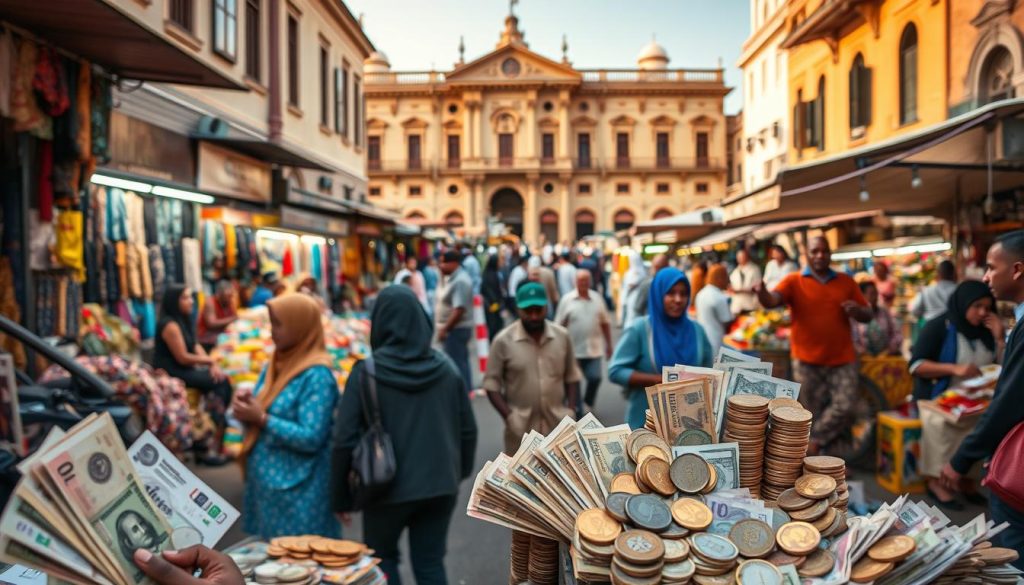
In select restaurants and hotels, you’ll find that these secondary currencies are welcomed. This is particularly helpful if you’re running low on Nakfa or prefer to use familiar denominations. Always confirm acceptance beforehand to avoid surprises.
Acceptance of U.S. Dollars and Euros
U.S. dollars and euros are commonly accepted in designated areas, such as major hotels and upscale restaurants. This is especially convenient for travelers who haven’t yet exchanged their currency. However, smaller establishments may only accept Nakfa, so it’s wise to carry both.
At the airport, you’ll find that some vendors and services accept U.S. dollars. This can be a lifesaver if you’re arriving late or need to make quick purchases before exchanging money. Keep in mind that exchange rates may vary, so it’s best to check current rates.
During your flight, you might also encounter opportunities to use secondary currencies. Some airlines accept U.S. dollars or euros for onboard purchases, providing another layer of convenience for travelers.
| Location | Accepted Currencies |
|---|---|
| Hotels | Nakfa, U.S. Dollars, Euros |
| Restaurants | Nakfa, U.S. Dollars |
| Airport | Nakfa, U.S. Dollars |
| Flight | U.S. Dollars, Euros |
To make the most of your trip, plan your budget around these areas. Carrying a mix of Nakfa and secondary currencies ensures you’re prepared for any situation. By understanding where and how to use these currencies, you’ll enjoy a smoother and more enjoyable experience.
Essential Payment Methods for Travelers
When planning your financial strategy for this destination, prepaid travel cards can be a game-changer. They offer a secure and convenient way to manage your money while avoiding high fees. Mobile payments, though growing globally, face limitations here due to infrastructure challenges.
Prepaid Travel Cards and Their Advantages
Prepaid travel cards are a smart option for managing your finances. They allow you to load multiple currencies, making it easy to switch between them without extra costs. These cards often come with lower fees compared to traditional bank cards, saving you money during your trip.
Another benefit is security. If your card is lost or stolen, you can quickly block it, protecting your funds. Plus, you can track your spending in real-time, helping you stay within budget. This makes prepaid cards a reliable choice for travelers.
Mobile Payment Considerations and Limitations
While mobile payments are gaining popularity worldwide, they are not widely adopted in this destination. Limited data services and difficulties in obtaining SIM cards make this option less practical. The government also has strict regulations on digital payments, further limiting their use.
If you plan to rely on mobile payments, it’s essential to have a backup plan. Carrying cash or a prepaid card ensures you’re prepared for any situation. Always check local guidelines to understand what’s allowed and what’s not.
By choosing the right payment methods, you can enjoy a hassle-free trip. Whether it’s a prepaid card or a mix of cash and mobile payments, planning ahead is key to a smooth experience.
Managing Currency Restrictions and Import/Export Limits
Understanding currency restrictions is key to a smooth travel experience in this location. When entering or exiting, you must declare amounts over US$10,000. This rule helps prevent illegal activities and ensures transparency in financial transactions.
Exporting local currency is also restricted. You can only take up to ERN 1,000 out of the country. Exceeding this limit can lead to penalties, so it’s essential to plan your finances carefully. Always keep this note in mind to avoid any issues at customs.
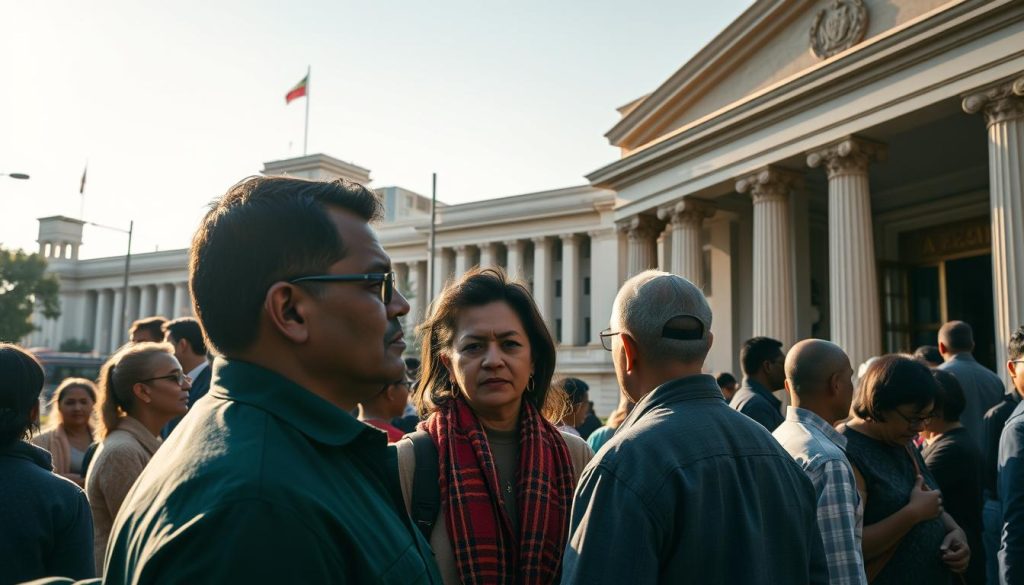
For currency exchange, use official bank offices or authorized dealers. These locations provide reliable services and ensure compliance with government regulations. Avoid unofficial dealers, as they may offer tempting rates but come with risks.
These restrictions are designed to prevent black market practices and maintain economic stability. By following the rules, you contribute to the country’s financial health while protecting your own interests.
“Staying within legal limits not only avoids penalties but also supports the local economy.”
Here are some practical tips to manage your funds wisely:
- Carry a mix of cash and prepaid cards for flexibility.
- Use official bank offices for currency exchange to ensure fair rates.
- Keep smaller denominations of local currency for daily transactions.
By understanding and adhering to these guidelines, you can navigate your trip with confidence and ease. Planning ahead ensures a hassle-free experience in this unique location.
Eritrea: Ultimate Travelers Guide to Currencies & Payments
Navigating financial transactions in this region requires a clear understanding of local practices. Whether you’re taking a taxi or shopping at a market, cash is the primary method of payment. This makes it essential to plan your finances carefully before your eritrea travel.
Always use official currency channels for exchanging money. Unofficial dealers may offer tempting rates, but they come with risks. Stick to authorized banks or exchange offices to ensure fair rates and secure transactions.
For daily expenses, carrying smaller denominations of the local currency is helpful. This is especially useful when paying for a taxi or buying snacks at a local shop. Having a mix of notes and coins ensures smooth transactions.
“Using official channels for currency exchange not only protects your money but also supports the local economy.”
Here’s a quick summary of accepted payment methods:
| Method | Where Accepted |
|---|---|
| Cash (Nakfa) | Everywhere |
| U.S. Dollars | Major hotels, select restaurants |
| Euros | Major hotels, select restaurants |
By following these guidelines, you’ll ensure a hassle-free experience during your eritrea travel. Planning ahead and using trusted sources for payment will make your journey smoother and more enjoyable.
Staying Safe: Local Laws & Payment Best Practices
Staying safe during your trip involves understanding local laws and payment practices. This ensures you avoid legal issues and handle transactions securely. From currency regulations to photography rules, being informed is key to a smooth experience.
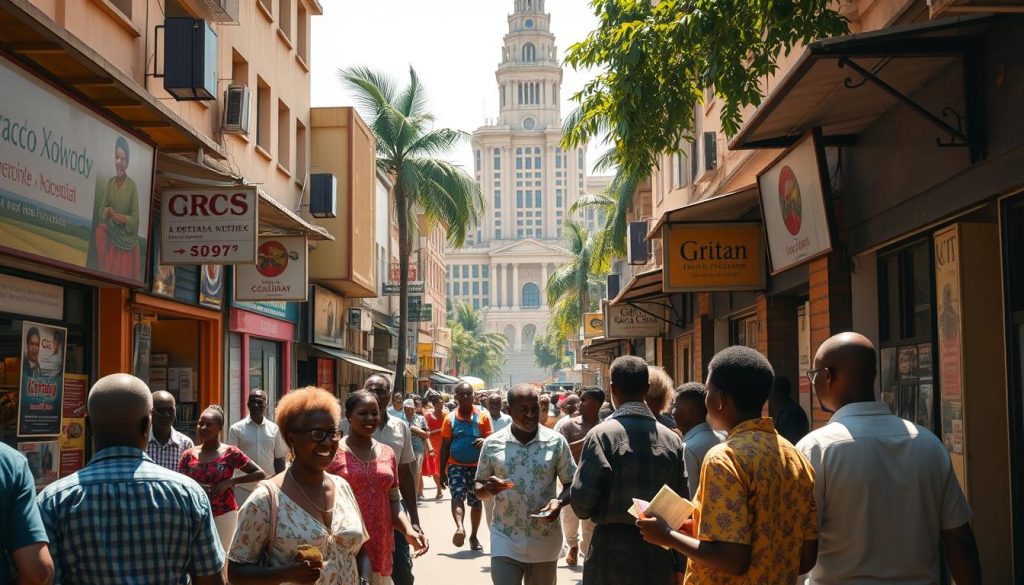
Understanding Legal Penalties and Regulations
Local laws are strict, especially regarding currency. Violating these rules can lead to severe penalties. For example, exporting more than ERN 1,000 is illegal and can result in fines or other consequences.
Always use official channels for currency exchange. Unofficial dealers may offer tempting rates but often come with risks. Stick to authorized banks or exchange offices to ensure compliance and fair rates.
Keep receipts for all transactions. These serve as proof of legal exchanges and can help resolve disputes. This detail is crucial for staying on the right side of the law.
Tips for Secure Transactions and Photography Cautions
When handling cash, always count your money in a secure location. Avoid displaying large amounts in public to prevent theft. This simple step can save you from unnecessary trouble.
Photography near military installations or government buildings is strictly prohibited. Violating this rule can lead to serious consequences. Always ask for permission before taking photos in sensitive areas.
For added security, consider using a prepaid travel card. These cards allow you to lock in exchange rates and protect your funds. They are especially useful for managing dollar transactions.
“Understanding local laws and payment practices not only keeps you safe but also ensures a hassle-free trip.”
Here are some additional tips to stay safe:
- Carry smaller denominations of local currency for daily expenses.
- Avoid discussing financial matters in public to prevent attracting unwanted attention.
- Keep a copy of your passport and important documents in a secure place.
By following these guidelines, you can navigate your trip confidently. Whether you’re a resident or a visitor, staying informed is the best way to ensure a safe and enjoyable experience.
Preparing Financially for Your Eritrea Trip
Planning your finances for a trip requires careful research and preparation. Start by identifying trusted money transfer providers to ensure secure transactions. This step is crucial for managing your funds effectively and avoiding unnecessary fees.
Monitoring the exchange market is another essential practice. By keeping an eye on trends, you can optimize your currency management and get the best rates. This proactive approach helps you make informed decisions and stretch your budget further.
Creating a detailed budget is key to handling unexpected expenses. Include daily costs, transportation, and emergencies to avoid surprises. This preparation ensures you’re financially ready for any situation during your trip.
To safeguard your funds, keep printed confirmations and digital copies of receipts. These records are invaluable for resolving disputes or tracking expenses. Additionally, consider using prepaid travel cards for added security and convenience.
If you have questions about fees or charges, contact your money transfer provider via email. Clear communication ensures transparency and helps you avoid hidden costs. This step is especially important for first-time visitors.
“A well-planned financial strategy is the foundation of a stress-free trip.”
Here’s a quick summary of financial preparation tips:
| Tip | Benefit |
|---|---|
| Research providers | Secure and reliable transactions |
| Monitor the market | Optimize exchange rates |
| Plan your budget | Handle unexpected expenses |
| Safeguard records | Resolve disputes easily |
| Email providers | Ensure transparent communication |
By following these guidelines, you’ll be well-prepared to manage your finances confidently. Whether you’re a seasoned traveler or a first-time visitor, these tips ensure a smooth and enjoyable experience.
Additional Travel Tips and Cultural Insights
Exploring the financial landscape of this region offers unique insights into budgeting and cultural practices. By understanding local habits and planning ahead, you can make the most of your trip while staying within your budget.
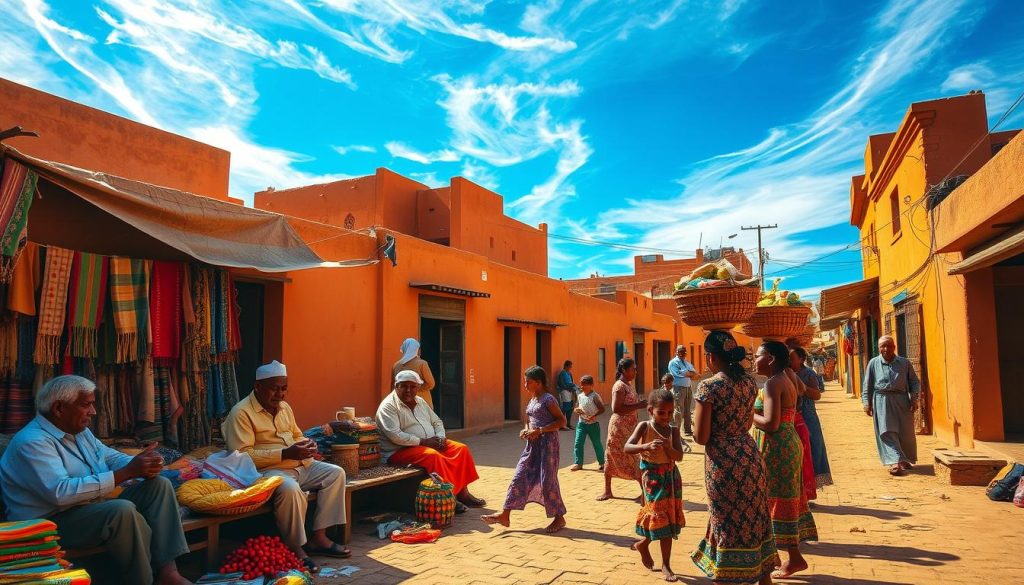
Practical Advice for Budgeting and Costs
When visiting, it’s essential to plan your spending carefully. Start by creating a daily budget that includes meals, transportation, and activities. This helps you avoid overspending and ensures you have enough funds for unexpected expenses.
To save money, consider using local products and services. For example, shopping at local markets often offers better prices than tourist-centric stores. This not only saves you money but also supports the local economy.
How to Adapt to Local Economic Practices
Adapting to local practices can enhance your experience. For instance, bargaining is common in markets, so don’t hesitate to negotiate prices. This can help you get the best deal on every item you purchase.
Always keep track of your expenses by retaining receipts and bills. This practice ensures you stay within your budget and provides proof of transactions if needed. It’s also a good idea to use smaller denominations for daily purchases to avoid overpaying.
Here’s a quick guide to managing your finances effectively:
| Tip | Benefit |
|---|---|
| Plan your daily budget | Avoid overspending |
| Use local products | Save money |
| Retain receipts | Track expenses |
| Bargain in markets | Get better deals |
By following these tips, you’ll navigate the financial landscape with confidence. Whether you’re shopping for souvenirs or dining at local restaurants, these practices ensure a smooth and enjoyable experience.
Conclusion
Understanding the local economy is essential for a smooth travel experience. Proper preparation ensures you handle transactions confidently and avoid unnecessary stress. From managing cash-only systems to using prepaid travel cards, planning ahead is key.
Always rely on official channels for credit exchanges to ensure fair rates and security. Carrying smaller denominations of local currency simplifies daily transactions, while adhering to legal guidelines protects you from penalties. These practices make your journey hassle-free and enjoyable.
Feel free to revisit this guide for a quick refresher before your trip. By following these tips, you’ll be well-prepared to navigate the unique financial landscape. Careful planning and trust in the provided information will lead to a rewarding experience.
The above is subject to change.
Check back often to TRAVEL.COM for the latest travel tips and deals.
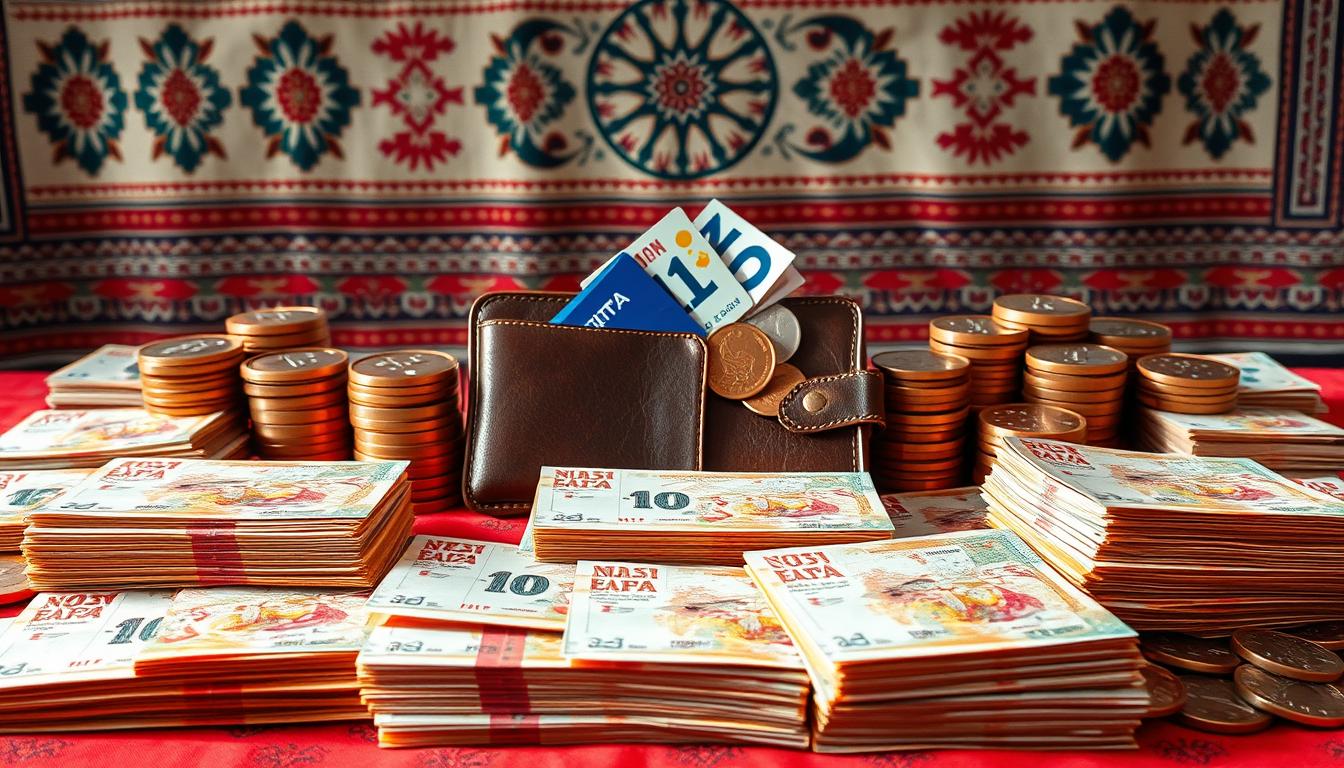
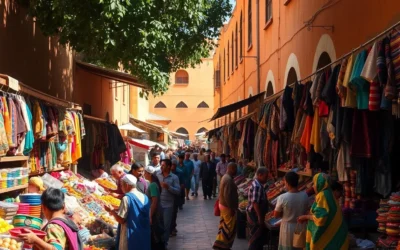
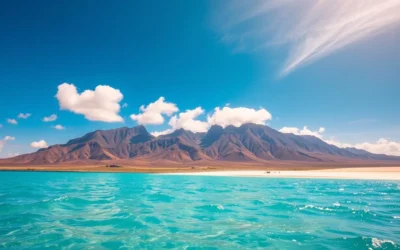

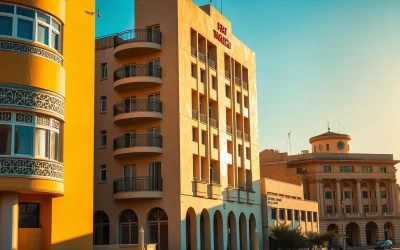


0 Comments